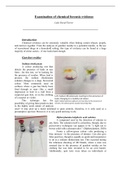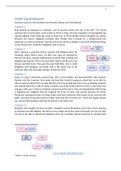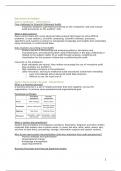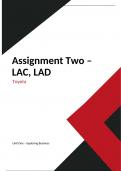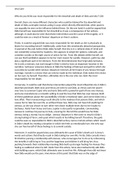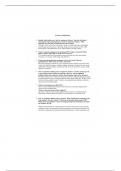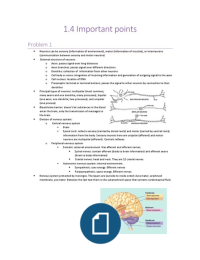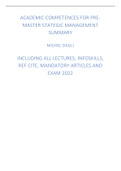Paracetamol is a common painkiller. As it has painkiller properties, it is used more
commonly for treating aches and pains by reducing their effects. They can also be used for
treating feverish temperatures. It is made by hydrolysing a known ester called 4-
Aminophenol with sodium hydroxide, this production of paracetamol is usually
maintained in manufacturing industries. It can affect the body by blocking the chemical
messengers in the brain that tell your body that you have pain. It also reduces high
temperatures by affecting the chemical messengers in an area of the brain that regulates
body temperature. The possible side effects when taking paracetamol include: allergic
reactions, low blood pressure, flushing and liver damages if overdosed
References:
https://www.nhs.uk/medicines/paracetamol-for-adults/about-paracetamol-for-adults/
https://pure.aber.ac.uk/ws/portalfiles/portal/70859942/ed3c00549_si_001.pdf
https://www.nhsinform.scot/tests-and-treatments/medicines-and-medical-aids/types-of-
medicine/paracetamol/
2. What is a pure substance?
A pure substance refers to a mixture which contains ONLY ONE type of chemical or
compound. As pure substances are more preferred because they are untampered with
and we can assess an individual chemical’s melting point, solubility etc without any errors
from other chemicals, we would want to determine if a chemical is pure or not. One way
we can is by using chromatographic techniques, this will enable us to determine a
mixtures purity as chromatography separates different mixtures in terms of solubility,
adsorption and polarity. We can determine the difference in purity by using the results
found on the chromatogram, if we see more than one spot on the chromatogram, this
means that the solution is impure as there should only be one spot identifying one
chemical. If we are not using chromatography, a visible distinction may be appropriate.
For clarity, if we know the solutions purity from their colour or any other distinction, we
can use this knowledge to understand if there are differences in the solution by using our
senses. However, some solutions are harder to show visible differences than others and
so using our senses may be unreliable.
References: https://www.bbc.co.uk/bitesize/articles/zhjptrd#zk86m39
https://www.bbc.co.uk/bitesize/guides/zgt6b82/revision/3
3. What is a functional group?
A hydroxyl group is a functional group which contains a single oxygen and a single
hydrogen chemically bonded forming a negative –OH ion, it is usually found in alcohol or
other organic compounds. When a molecule has a hydroxyl group, they are able to form
bonds with an oxygen ion from another hydroxyl group using the positive hydrogen ion
from another molecule or the same molecule which can form an intermolecular or
intramolecular bond called hydrogen bond, these bonds tend to be formed between
hydrogen and the three electronegative elements (nitrogen, fluorine and oxygen), their
main properties are: raising melting or boiling points, tend to be less volatile. An amide
group refers to an organic compound which consists of a carbonyl group attached to an
amine group. The amide functional group is given as -CONH2.
References: https://www.britannica.com/science/hydroxyl-group
https://www.vedantu.com/chemistry/hydrogen-bond

